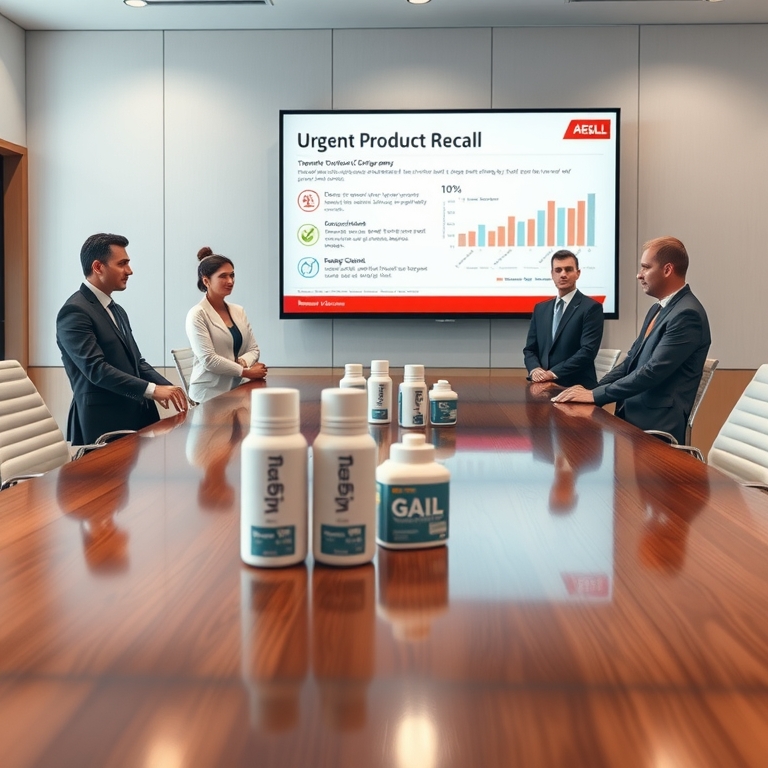In an unexpected turn of events that has sent ripples through the personal care industry, the U.S. Food and Drug Administration (FDA) has issued an urgent recall of a widely popular deodorant brand due to contamination concerns. This move comes amidst growing consumer awareness and scrutiny over product safety, underscoring the importance of stringent quality controls in manufacturing processes. The decision has not only triggered a sense of urgency among retailers and consumers but also raised questions about the oversight and regulatory measures that govern the personal care sector.
The deodorant in question, a staple in many households due to its long-standing reputation for reliability and effectiveness, was found to contain potentially harmful contaminants during routine testing. The FDA’s alert specifies the presence of benzene, a chemical known for its carcinogenic properties. Benzene is not an ingredient typically used in deodorant formulations, which suggests that its presence is likely due to contamination during production or packaging processes. The discovery of benzene in consumer products is always a serious matter, given its hazardous implications for human health. Prolonged exposure to this chemical is linked to serious health conditions, including leukemia and other blood disorders, which heightens the stakes of this recall.
The immediate response from the manufacturer has been one of cooperation and transparency. In a statement released shortly after the FDA’s announcement, the company acknowledged the gravity of the situation and assured consumers and stakeholders alike that they are taking all necessary steps to address the issue. This includes a halt in production, an internal investigation to pinpoint the source of contamination, and collaboration with external experts to prevent future occurrences. The company has also emphasized its commitment to consumer safety, urging users to stop using the affected products immediately and providing instructions on how to return them for a full refund.
While the recall is a proactive measure to safeguard consumer health, it also raises broader questions about the regulatory framework governing personal care products. Unlike pharmaceuticals, which are subject to rigorous pre-market approval processes, personal care products are not required to undergo the same level of scrutiny before hitting the shelves. This regulatory gap has been a topic of debate among industry experts and consumer advocacy groups, who argue for more stringent oversight to prevent such lapses in safety.
The recall has also had significant implications for retailers. Major chains that stock the affected brand have been quick to respond, pulling the product from shelves and updating their recall notices to inform consumers. Retailers are also working closely with the manufacturer to manage returns and refunds efficiently. For smaller retailers, the recall presents logistical challenges, as they scramble to manage inventory and address customer concerns. The situation underscores the interconnectedness of the supply chain and the ripple effects that a single product recall can have across the industry.
From an economic standpoint, the recall could potentially impact the manufacturer’s market share and brand reputation, at least in the short term. The company’s swift response and transparent communication will be critical in mitigating long-term damage. Consumers today are more informed and have access to a wealth of information at their fingertips, which means that trust can be both easily lost and quickly regained based on how a company handles a crisis. In this digital age, where news spreads rapidly across social media platforms, the company’s ability to manage public perception will be as crucial as resolving the contamination issue itself.
This incident also serves as a wake-up call for the industry as a whole, highlighting the need for robust quality assurance measures and the importance of maintaining consumer trust. It is a reminder that in the competitive landscape of personal care products, where brand loyalty can hinge on safety and reliability, companies must prioritize rigorous testing and adhere to the highest standards of manufacturing excellence.
In the coming months, it will be interesting to observe how this recall influences regulatory policies and industry practices. There may be increased pressure on regulatory bodies to implement more comprehensive safety checks and on manufacturers to enhance their quality control protocols. For consumers, this recall is a poignant reminder of the importance of staying informed about the products they use daily and advocating for greater transparency and accountability from manufacturers.
As the investigation unfolds, all eyes will be on the FDA and the manufacturer to see how they navigate this complex situation. The outcome could set a precedent for future recalls and shape the regulatory landscape of personal care products. For now, the priority remains ensuring consumer safety and restoring confidence in a product that has been a trusted part of everyday life for many. The industry’s response to this challenge will undoubtedly influence consumer trust and business practices in the years to come, marking this recall as a significant moment in the ongoing dialogue about product safety and corporate responsibility.

Leave a Reply